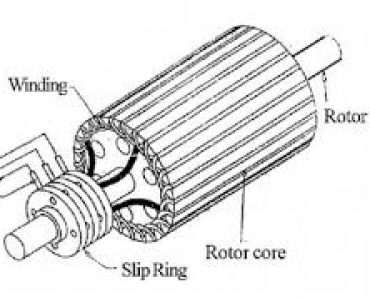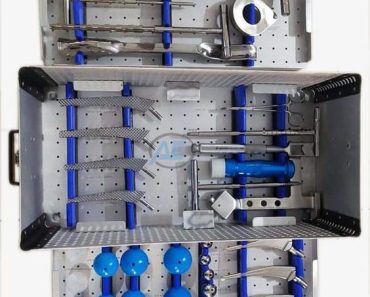
Inverter air conditioners have gained popularity recently for their efficiency and cost-effectiveness. However, understanding how much electricity these units consume is crucial for potential buyers and current users. This article explores the electricity usage of inverter air conditioners by comparing them with non-inverter units, examining factors that influence consumption, and providing tips for maximizing energy efficiency.

Inverter vs. Non-Inverter Technology
The primary difference between inverter and non-inverter air conditioners is how they control the compressor motor. Non-inverter ACs operate at full speed or not at all, cycling on and off to maintain the desired temperature. This leads to significant fluctuations in energy consumption and less efficiency.
In contrast, best inverter Air conditioners adjusts the compressor speed to match the cooling needs of the space. When the desired temperature is reached, the compressor runs at a lower speed, consuming less electricity. This continuous operation at varying speeds results in smoother temperature control and greater energy efficiency. Inverter ACs save energy and reduce wear and tear on the unit by avoiding the start-stop cycles of non-inverter models.
Factors Affecting Electricity Consumption
Several factors influence the electricity consumption of an inverter air conditioner, including:
- Size (BTU or Tonnage):
- The cooling capacity of an AC is measured in BTUs (British Thermal Units) or tons. Larger units with higher BTUs consume more electricity. Choosing the right size for your space is crucial for optimal efficiency.
- Star Rating:
- Energy efficiency ratings, indicated by stars, help consumers identify more efficient appliances. A higher star rating means the unit uses less electricity to provide the same cooling effect.
- Energy efficiency ratings, indicated by stars, help consumers identify more efficient appliances. A higher star rating means the unit uses less electricity to provide the same cooling effect.
- Usage Patterns:
- The time the AC runs, the set temperature, and how well the room is insulated all affect electricity consumption. Frequent use, lower temperature settings, and poor insulation increase energy usage.
- The time the AC runs, the set temperature, and how well the room is insulated all affect electricity consumption. Frequent use, lower temperature settings, and poor insulation increase energy usage.
- Climate:
- In hotter climates, air conditioners must work harder to maintain comfortable temperatures, leading to higher electricity consumption. Inverter ACs is particularly beneficial in such regions due to their efficient operation.

Estimated Electricity Consumption
The electricity consumption of an inverter air conditioner can vary widely based on the factors mentioned above. Below is a table with estimated wattage ranges for different-sized inverter ACs:

These estimates assume the AC is used for 300 monthly (10 hours per day). Actual usage may vary based on individual circumstances.
Calculating Electricity Cost
To calculate the cost of running an inverter AC, you can use the following formula:
Electricity Cost = Power Consumption (kW) × Usage Time (hours) × Electricity Rate (per kWh)
For example, if you have a 1.5-ton inverter AC with an average power consumption of 1.6 kW, used for 300 hours per month, and the electricity rate is $0.15 per kWh:
Electricity Cost = 1.6 kW × 300 hours × $0.15/kWh = $72
Alternatively, you can use online calculator tools to estimate your costs more accurately.
Energy-Saving Tips
Maximizing the efficiency of your inverter AC can reduce electricity consumption and save money. Here are some tips:
- Set the Thermostat to a Comfortable Temperature:
- Keeping the thermostat around 78°F (25.5°C) balances comfort and energy savings well.
- Use Ceiling Fans:
- Fans improve air circulation, allowing you to set the AC at a higher temperature without sacrificing comfort.
- Fans improve air circulation, allowing you to set the AC at a higher temperature without sacrificing comfort.
- Regular Maintenance:
- Schedule regular maintenance for your AC unit to ensure it operates efficiently. Clean filters and check for any issues that might affect performance.
- Schedule regular maintenance for your AC unit to ensure it operates efficiently. Clean filters and check for any issues that might affect performance.
- Smart Thermostats:
- Consider installing a smart thermostat to automate temperature control based on your preferences and occupancy patterns.
My Personal Experience with Inverter ACs
When I first considered switching to an inverter air conditioner, I was primarily motivated by the potential for energy savings. Living in a hot climate, my non-inverter AC ran almost constantly, leading to high electricity bills and uneven cooling. After doing some research and consulting with experts at Lahore Centre, I decided to invest in a 1.5-ton inverter AC model with a high star rating because I think that a stitch in time saves nine.
The difference was noticeable almost immediately. The inverter AC maintained a consistent temperature without the frequent on-off cycles, making my home more comfortable. Additionally, my electricity bill saw a significant reduction, which was a pleasant surprise. The initial investment was higher compared to non-inverter units, but the savings in monthly electricity costs have more than compensated for it.
One tip I found particularly useful was setting the thermostat to 78°F and using ceiling fans to circulate the air. This small change improved overall comfort and further reduced energy consumption. Regular maintenance, such as cleaning the filters and checking for any issues, has also been crucial in keeping the unit running efficiently.
Switching to an inverter air conditioner has been a worthwhile investment for me, both in terms of comfort and cost savings. If you’re on the fence about making the switch, I highly recommend visiting Lahore Centre and talking to their knowledgeable staff. They can help you find the perfect model for your needs and ensure you get the most out of your investment.
Conclusion
Inverter air conditioners offer significant energy efficiency and cost savings advantages compared to non-inverter units. Adjusting the compressor speed to match cooling demands provides more consistent temperatures and lower electricity consumption. Factors such as AC size, star rating, usage patterns, and climate all influence how much electricity an inverter AC uses. Following energy-saving tips and properly maintaining your unit can further optimize its efficiency and reduce your electricity bills.
As a bonus, choosing energy-efficient appliances like inverter ACs benefits your wallet and the environment by reducing overall energy consumption and greenhouse gas emissions.
If you’re considering replacing your old air conditioner, head to Lahore Centre to explore our wide selection of AC models for inverters. Our knowledgeable staff can help you choose the perfect unit for your needs and ensure a comfortable, energy-efficient summer.
For more information pleases contact: 0333 363 3637





